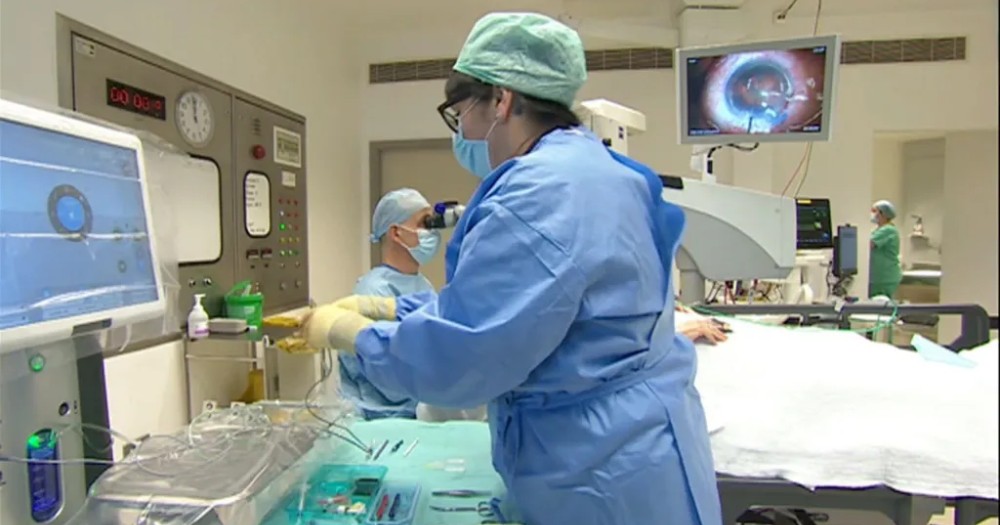AI assistant eases pressure on nurses in cataract care

In a bid to alleviate the mounting pressures on NHS staff, artificial intelligence (AI) is revolutionizing cataract care by offering a faster, more cost-effective, and efficient service for patients.
Researchers have highlighted how an innovative automated voice system, named Dora, is making significant strides in streamlining patient follow-ups and freeing up valuable time for healthcare professionals.
How does it work?
Developed in Oxford, the AI-powered system Dora autonomously contacts patients via telephone, asks essential questions, and interprets their responses to assess whether further medical attention is necessary. This system is particularly effective in postoperative care for cataract patients, where Dora's ability to prioritize those needing additional clinical input has proven to be as reliable as a human ophthalmologist.
Dr. Kanmin Xue, a leading consultant ophthalmologist involved in the project, explained, "The Dora system is able to call patients autonomously by telephone and conduct a conversation that gathers the key information needed to determine whether a patient is recovering well or requires further medical assessment."
Currently, Dora is operational in nine hospital trusts, predominantly in southern England, where it has already handled over 12,000 patient calls, each lasting around eight minutes.
Why does it matter?
Cataract surgery is the most frequently performed surgical procedure in the UK, with nearly half a million operations conducted annually. However, the sheer volume of patients has made it challenging to offer timely follow-up appointments with clinicians. Dora's introduction has significantly alleviated this burden, allowing nursing staff to redirect their efforts toward other essential clinical activities.
As Dr. Xue pointed out, "If you think about it, it's like having two nurses calling all day and doing nothing else," highlighting the substantial time savings.
For example, at Frimley Health NHS Trust, which performs around 5,000 procedures a year, Dora has freed up more than 530 hours of nursing time since its implementation in December 2022. This innovation has also drastically reduced the waiting time for follow-up calls from 10 weeks to just two weeks, effectively clearing the backlog created during the COVID-19 pandemic.
The context
Dora's success story is part of a broader trend in which AI technologies are increasingly being integrated into healthcare to address chronic resource shortages and improve patient outcomes. The system's impact extends beyond just cataract care. Its developer, Ufonia, is already working on expanding the technology to assist with other chronic conditions, such as osteoporosis.
While patient feedback has generally been positive, with many appreciating the convenience and reduced need for in-person appointments, some concerns have been raised about the lack of a "human element" in cases involving complications. Despite these concerns, the cost savings — around £35 per patient compared to standard care — are significant, and the potential for AI to transform healthcare delivery remains promising.
Dr. Ernest Lim, Ufonia's science director, remarked on the broader implications of AI in healthcare: "From supporting back office or administrative tasks — things like writing clinical letters or taking consultation notes — to what Dora's trying to do, which is directly speaking to patients and engaging with them," emphasizing AI's role in enhancing patient care accessibility.
💡Did you know?
You can take your DHArab experience to the next level with our Premium Membership.👉 Click here to learn more
🛠️Featured tool
 Easy-Peasy
Easy-Peasy
An all-in-one AI tool offering the ability to build no-code AI Bots, create articles & social media posts, convert text into natural speech in 40+ languages, create and edit images, generate videos, and more.
👉 Click here to learn more


